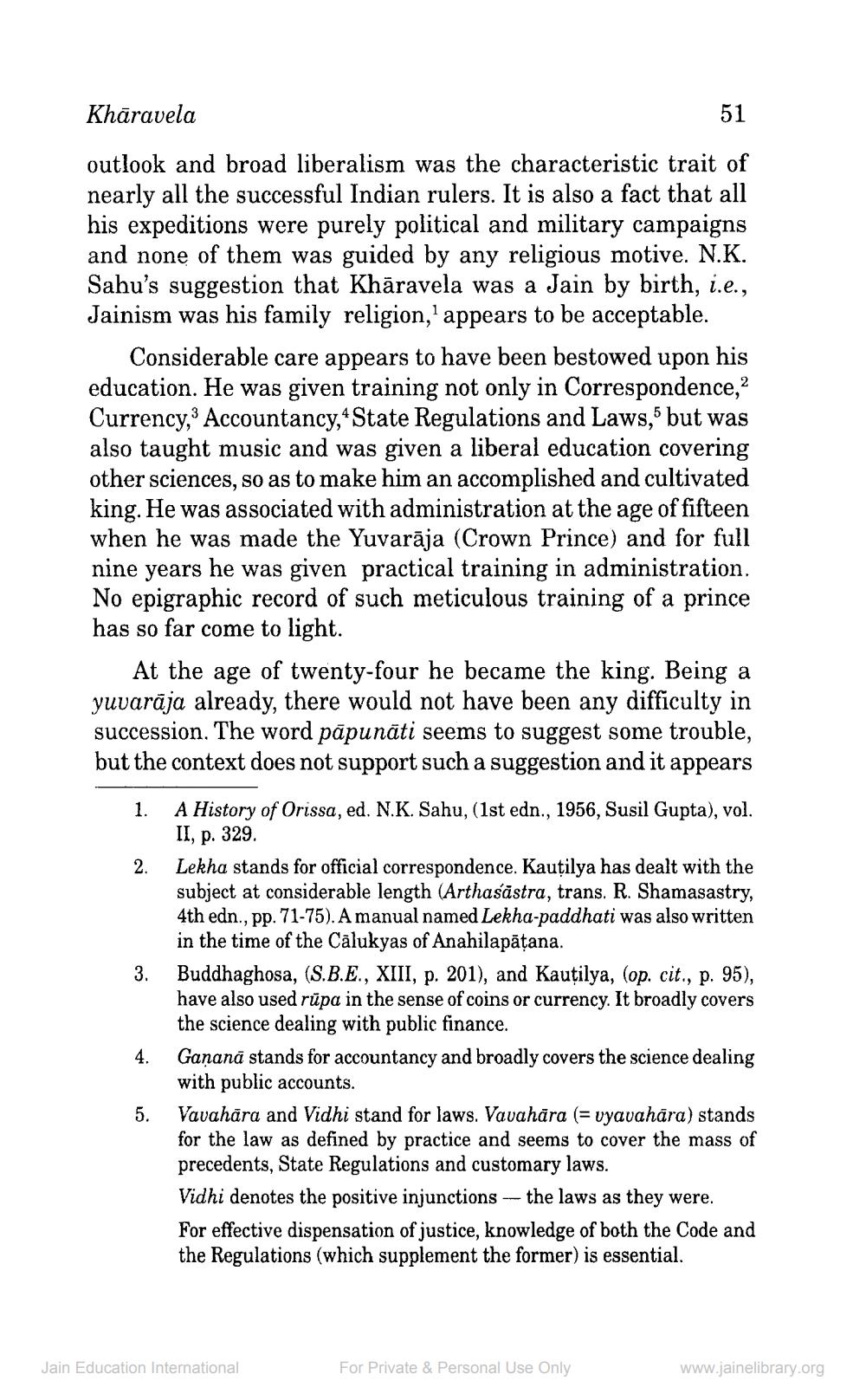________________
Khāravela
51
outlook and broad liberalism was the characteristic trait of nearly all the successful Indian rulers. It is also a fact that all his expeditions were purely political and military campaigns and none of them was guided by any religious motive. N.K. Sahu's suggestion that Kharavela was a Jain by birth, i.e., Jainism was his family religion,' appears to be acceptable.
Considerable care appears to have been bestowed upon his education. He was given training not only in Correspondence,2 Currency, Accountancy, State Regulations and Laws," but was also taught music and was given a liberal education covering other sciences, so as to make him an accomplished and cultivated king. He was associated with administration at the age of fifteen when he was made the Yuvaraja (Crown Prince) and for full nine years he was given practical training in administration. No epigraphic record of such meticulous training of a prince has so far come to light.
At the age of twenty-four he became the king. Being a yuvarāja already, there would not have been any difficulty in succession. The word papunāti seems to suggest some trouble, but the context does not support such a suggestion and it
appears
1. A History of Orissa, ed. N.K. Sahu, (1st edn., 1956, Susil Gupta), vol. II, p. 329.
2.
3.
4.
5.
Lekha stands for official correspondence. Kautilya has dealt with the subject at considerable length (Arthasästra, trans. R. Shamasastry, 4th edn., pp. 71-75). A manual named Lekha-paddhati was also written in the time of the Calukyas of Anahilapāṭana.
Buddhaghosa, (S.B.E., XIII, p. 201), and Kautilya, (op. cit., p. 95), have also used rupa in the sense of coins or currency. It broadly covers the science dealing with public finance.
Gaṇană stands for accountancy and broadly covers the science dealing with public accounts.
Vavahara and Vidhi stand for laws. Vavahara (= vyavahāra) stands for the law as defined by practice and seems to cover the mass of precedents, State Regulations and customary laws.
Vidhi denotes the positive injunctions - the laws as they were.
For effective dispensation of justice, knowledge of both the Code and the Regulations (which supplement the former) is essential.
Jain Education International
For Private & Personal Use Only
www.jainelibrary.org




